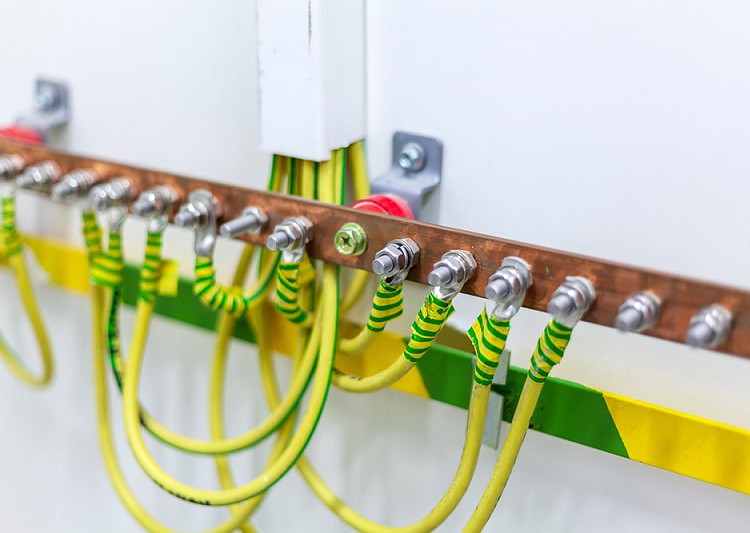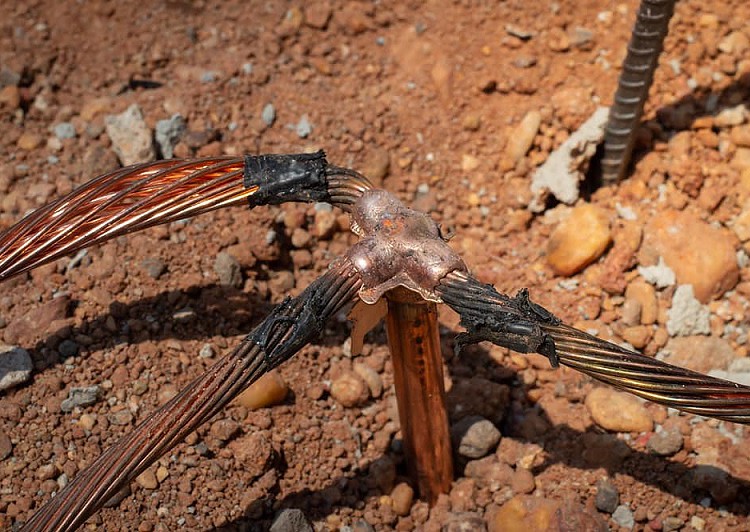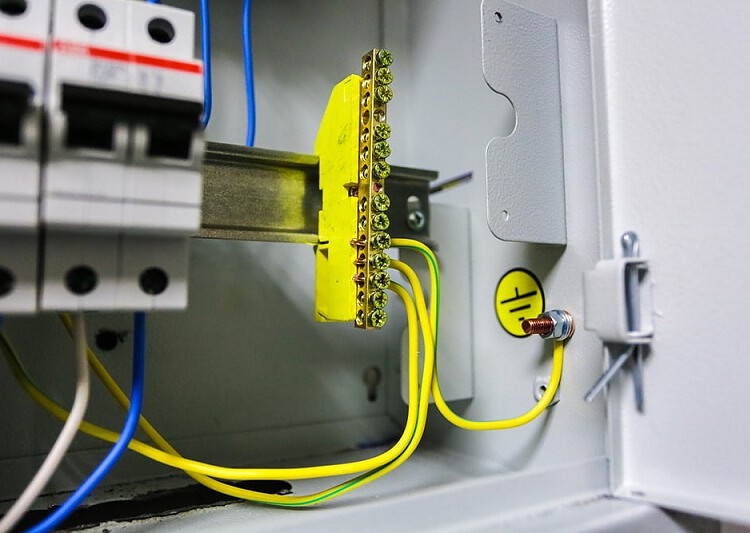There are a lot of people who don’t believe that their office desks need an earthing point because the power is grounded.
Little do they know that, if they ever accidentally touch metal or encounter a static charge, the “grounded” power won’t do much to help. You will get electrocuted.
And no one wants that! On top of being painful, electrocution can be fatal if the currents are strong enough.
So, does your office desk need grounding?
That’s one of the most common questions asked.
Don’t worry, we will talk about what “earthing” means, as well as when it is necessary.
Keep on reading, then, to learn more about earthing.
Table of Contents
What Does “Earthing” Mean?
So what is earthing, and why are people so concerned about it?
Earthing is a method used to protect people from electrical shock. It allows electricity to be discharged into the earth, keeping your body from getting electrocuted.
In simpler terms, earthing is done to give electricity “an easy way out” of a system.
And in this case, that system you don’t want electric currents passing through is the human body!
Earthing is needed to prevent current leakage and potential electrocution that comes from overloaded circuits.
It is a process of “grounding” the system. Providing a safe pathway for the current to flow with earthing devices such as a grounding rod.
For “earthed” materials to be seen as effective, their resistance should read zero ohms, or as close to that range as possible, for us to be protected from electrocution.
When Is Earthing Done?

As we have mentioned above, earthing is done so that you or the inhabitants of a home or building do not get electrocuted.
Therefore, “earthing” is done during the construction of new buildings, installation of new appliances and circuitry, and when buying new office desks and other work equipment.
If you are unsure whether you need to have your home, office, and office desk “earthed,” try contacting your local electrical safety inspectors.
And if you are concerned about new appliances you bought for your home, don’t sweat it.
Most new units nowadays come with a built-in “earth” wiring to protect the consumers from electrocution!
Do Office Desks Need Earthing?

The short answer here is: it depends.
You have to think about what type of desk you are using and what conductors were used in its construction.
For example, if you are using a desk with unsheathed conductors, you may want to consider using an earthing mat just to add some protection.
Yes, unsheathed conductors are safe for people to be around, but there is still a risk for electrocution. So, if you’re worried about getting electrocuted (like most people are!), then go get those earthing mats!
But do all desks need to be “earthed”? Nope!
Another example is a tubular steel-framed desk. These types of desks don’t usually need to get “earthed” because they have a lower chance of electrocuting humans the way their materials were made.
Here’s another explanation of how earthing works:
Let’s say you have a floodlight that has a metal chassis, and the live wire inside has come loose and is now touching the metal chassis.

Then you plug in your floodlight. Two things can happen:
- If your floodlight didn’t come with a protective earthing wire, as soon as you plug in your floodlight, you have a very high chance of getting an electric shock.
- If your floodlight came with a protective earthing wire, even though you plugged in your floodlight, you won’t get shocked because the current “flowed to earth” instead of you!
We hoped this explanation helped. It can be applied to home appliances, and office furniture as well!
Conclusion
Should you “earth” your office desk? As we said, it depends on the type of desk you are using and what type of conductors were used in its creation.
But we suggest that you earth your desk anyway. It’s better safe than sorry.
And there’s no such thing as “too safe” when it comes to electricity!
So, are you going to earth your desk?
Feel free to let us know! Leave your comments below.
FAQs
What are the consequences of not earthing office desks?
Not earthing your office desks will increase your risk of electrocution.
How is earthing different from grounding?

They may be considered as similar terms, but there’s one main difference between them:
With earthing, non-current-carrying parts are connected to the ground while with grounding, the current-carrying parts are the ones connected to the ground.
Is earthing required by law?
Yes. Before you can start a new electrical installation, the inspector thoroughly checks if all your wiring meets the safety prescriptions.
You will find that one of the conditions mentioned in the “Guidelines for Electrical Equipment and Appliances” is earthing!
What are the methods of earthing?
Below are the different methods of earthing:
Pipe earthing – this method involves digging out a pit that is big enough for an 8-foot-long pipe that is 35–75 in diameter. The pipe is then punctured with a few holes to maintain dampness and maintain conductivity.
Plate earthing – this method involves digging an 8-foot in the ground before inserting a galvanized iron with charcoal and sand. After securing the materials, water is poured in to increase the conductivity.
Rod earthing – this method, on the other hand, involves hammering zinc and copper rods that are about 3–5 feet in length and 0.5–0.8 in diameter into the earth.
Coil earthing – this method uses coils made of galvanized iron wires. Only the smallest amount of wiring is used. This method is typically used for earth electric poles.
Strip earthing – commonly used in long-distance transmission lines, strip or wire earthing is done in places that tend to be rocky or have more rocks in the ground.
Do appliances come with protective earthing?
Yes, they do! Most appliance units that are released to the market have protective earthing per safety guidelines.

My name is Vance, and I am the owner of To Ergonomics. Our mission is to improve your workflow by helping you create a supportive and welcoming environment. We hope that you’ll find what you’re looking for while you’re here.

